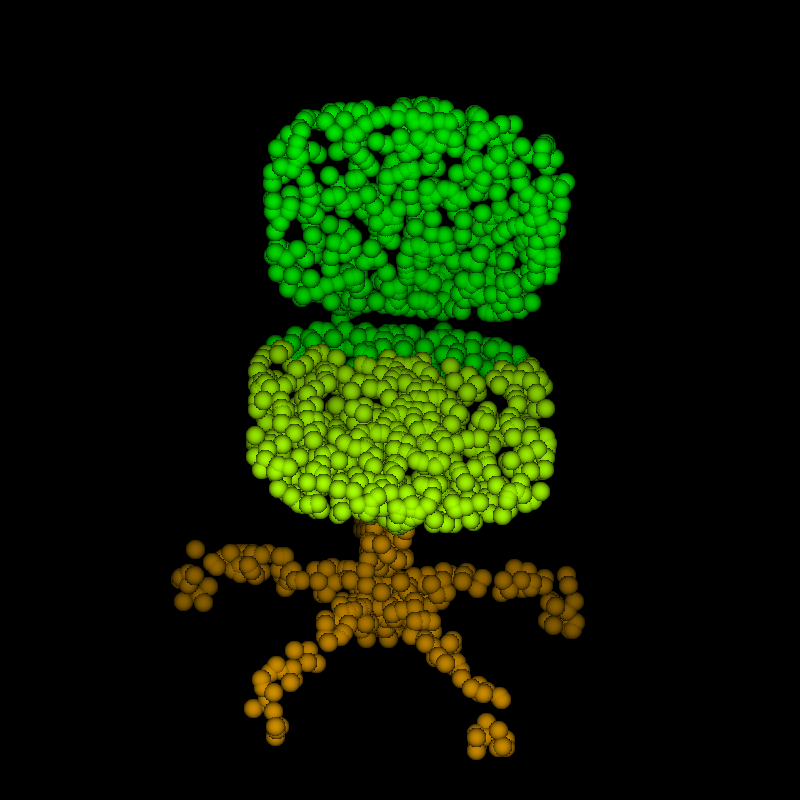https://github.com/fxia22/pointnet.pytorch
pytorch implementation for "PointNet: Deep Learning on Point Sets for 3D Classification and Segmentation" https://arxiv.org/abs/1612.00593
https://github.com/fxia22/pointnet.pytorch
Last synced: 10 months ago
JSON representation
pytorch implementation for "PointNet: Deep Learning on Point Sets for 3D Classification and Segmentation" https://arxiv.org/abs/1612.00593
- Host: GitHub
- URL: https://github.com/fxia22/pointnet.pytorch
- Owner: fxia22
- License: mit
- Created: 2017-04-14T23:05:17.000Z (almost 9 years ago)
- Default Branch: master
- Last Pushed: 2023-03-23T19:29:57.000Z (almost 3 years ago)
- Last Synced: 2025-04-14T12:18:20.250Z (11 months ago)
- Language: Python
- Homepage:
- Size: 224 KB
- Stars: 2,233
- Watchers: 23
- Forks: 637
- Open Issues: 58
-
Metadata Files:
- Readme: README.md
- License: LICENSE
Awesome Lists containing this project
- Awesome-pytorch-list-CNVersion - pointnet.pytorch
- CV-pretrained-model - pointnet.pytorch
- Awesome-pytorch-list - pointnet.pytorch
README
# PointNet.pytorch
This repo is implementation for PointNet(https://arxiv.org/abs/1612.00593) in pytorch. The model is in `pointnet/model.py`.
It is tested with pytorch-1.0.
# Download data and running
```
git clone https://github.com/fxia22/pointnet.pytorch
cd pointnet.pytorch
pip install -e .
```
Download and build visualization tool
```
cd scripts
bash build.sh #build C++ code for visualization
bash download.sh #download dataset
```
Training
```
cd utils
python train_classification.py --dataset --nepoch= --dataset_type
python train_segmentation.py --dataset --nepoch=
```
Use `--feature_transform` to use feature transform.
# Performance
## Classification performance
On ModelNet40:
| | Overall Acc |
| :---: | :---: |
| Original implementation | 89.2 |
| this implementation(w/o feature transform) | 86.4 |
| this implementation(w/ feature transform) | 87.0 |
On [A subset of shapenet](http://web.stanford.edu/~ericyi/project_page/part_annotation/index.html)
| | Overall Acc |
| :---: | :---: |
| Original implementation | N/A |
| this implementation(w/o feature transform) | 98.1 |
| this implementation(w/ feature transform) | 97.7 |
## Segmentation performance
Segmentation on [A subset of shapenet](http://web.stanford.edu/~ericyi/project_page/part_annotation/index.html).
| Class(mIOU) | Airplane | Bag| Cap|Car|Chair|Earphone|Guitar|Knife|Lamp|Laptop|Motorbike|Mug|Pistol|Rocket|Skateboard|Table
| :---: | :---: | :---: | :---: | :---: | :---: | :---: | :---: | :---: | :---: | :---: | :---: | :---: | :---: | :---: | :---: | :---: |
| Original implementation | 83.4 | 78.7 | 82.5| 74.9 |89.6| 73.0| 91.5| 85.9| 80.8| 95.3| 65.2| 93.0| 81.2| 57.9| 72.8| 80.6|
| this implementation(w/o feature transform) | 73.5 | 71.3 | 64.3 | 61.1 | 87.2 | 69.5 | 86.1|81.6| 77.4|92.7|41.3|86.5|78.2|41.2|61.0|81.1|
| this implementation(w/ feature transform) | | | | | 87.6 | | | | | | | | | | |81.0|
Note that this implementation trains each class separately, so classes with fewer data will have slightly lower performance than reference implementation.
Sample segmentation result:

# Links
- [Project Page](http://stanford.edu/~rqi/pointnet/)
- [Tensorflow implementation](https://github.com/charlesq34/pointnet)